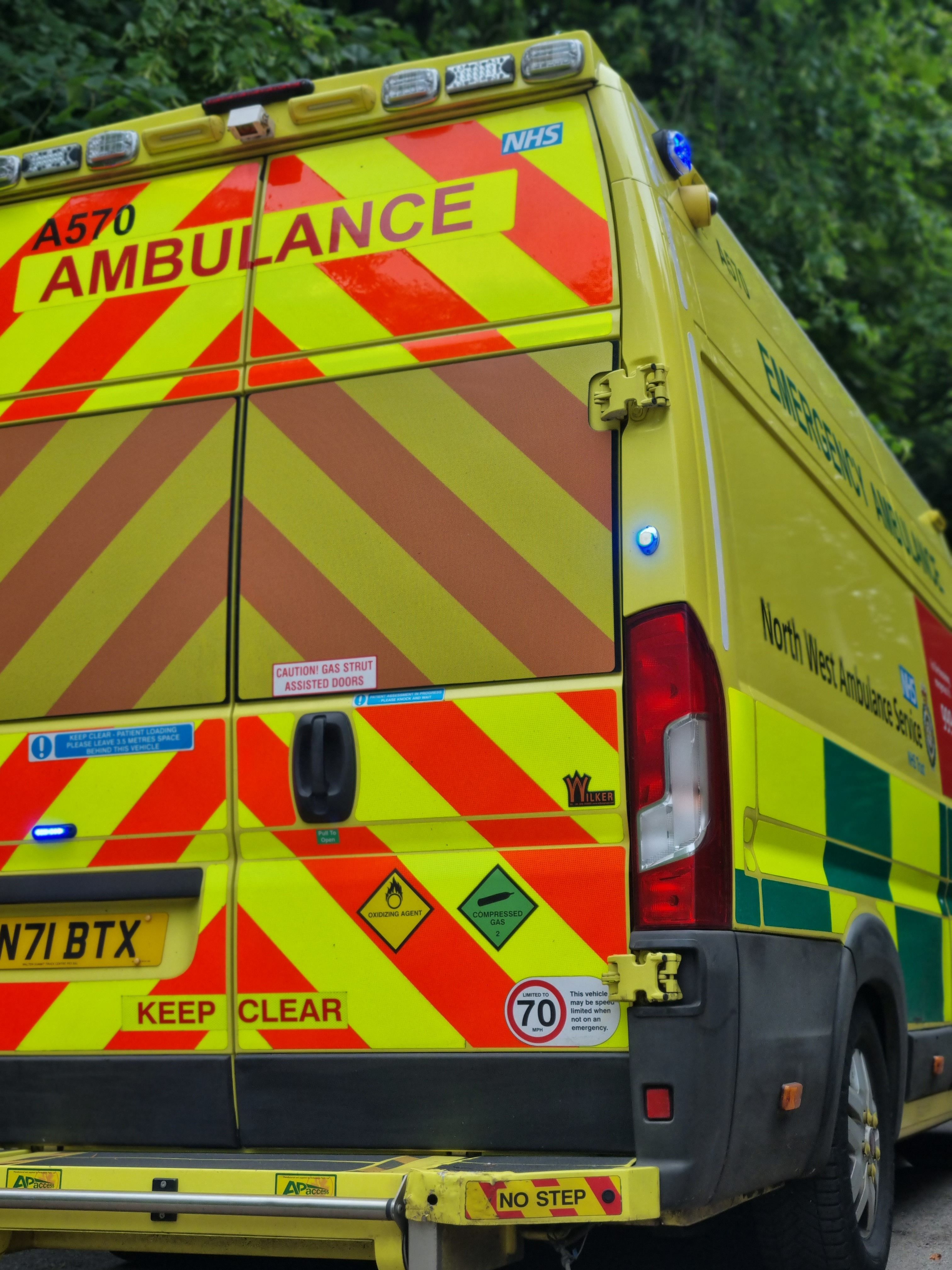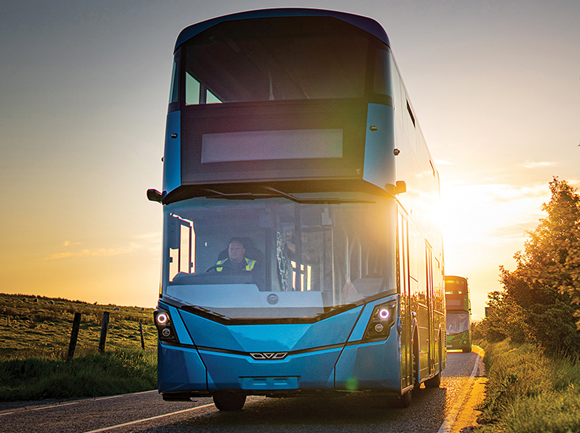North West Ambulance Service boosts resilience ahead of winter
.jpg)
AS the darker evenings set in and
the temperature drops, North West Ambulance Service (NWAS) is putting plans in
place to ensure it can continue to deliver a high quality service despite
additional winter demands, including:- the recruitment of more than 700 new
staff members.
By Christmas, 75 new Paramedics and 32 Emergency Medical Technicians will have
joined the team, with more due to be in post by March 2024. There will be 72 new
recruits for the Patient Transport Service and 250 new call handlers for the 999
and NHS 111 contact centres.
NWAS is also increasing the number of clinicians working in its 999 Contact
Centres. They help get patients the right care for their needs by providing
healthcare advice over the phone or making referrals to an alternative health or
care service in the community.
An additional 32 Emergency Ambulances will be out responding to patients by
February, increasing the number of Emergency Ambulances operating across the
Region to 553.
NWAS will continue to work closely with local Hospitals to help reduce the
amount of time Ambulances spend waiting to handover patients, allowing vehicles
and crews to be free to respond to the next emergency.

Chief Operating Officer, Salman Desai said:- "As always, we
are here for you when you need us most and we have robust plans in
place to ensure that the high quality service expected by our
patients is maintained throughout the winter period. We know that
the winter months will bring with it additional challenges in terms
of more people needing our help, ongoing industrial action taking
place across the healthcare system and an expected increase of
seasonal illnesses, but we are as prepared as we can be for
increased demands on our service. There are a number of ways that
you can help us help you this winter including:- getting your flu
and COVID vaccinations, stocking up your medicines cupboards,
ensuring repeat prescriptions are ordered in advance, making use of
local Pharmacies and using
111.NHS.UK for advice on non-urgent
conditions."
For more information on the services provided by NWAS visit:-
NWAS.NHS.UK.
£80 million funding delivered to improve and protect bus services

MILLIONS of people across England
will benefit from lower fares, improved reliability and better bus services, as
the Government delivers a further:- £80 million to support buses into 2025.
Roads Minister Richard Holden confirmed allocations for 64 local authorities
across England from the:- £80 million investment in the Bus Service Improvement
Plan+ (BSIP+) for 2024-25.
Local authorities can use the funding to improve local buses in several ways,
such as by bringing in new services or routes, extending timetables through new
morning or evening buses, or by making tickets cheaper through reduced fares for
elderly or young people, depending on what will be most valuable in their local
area.
The investment could also be used to protect hundreds of bus services with low
passenger numbers, so that people who rely on them for essential services can
continue to access their local bus.
Roads Minister Richard Holden said:- "Buses are the most popular form of
public transport, and millions of people across the country from the Tees Valley
to Torbay rely on their local service to get to work, attend medical
appointments and see loved ones. We are providing a further:- £80 million to
help local authorities improve and protect essential services, delivering for
local communities across the country by enhancing transport connections,
supporting passengers and growing the economy."
The funding follows the 1st:- £80 million BSIP+ investment for:- 2023 to 2024,
and the previous:- £1 billion from the 1st BSIP funding announced in 2022.
It comes on top of a further:- £140 million announced in May from the extension
of the Bus Service Operators Grant (BSOG), taking the total to continue
supporting and protecting bus services across England to:- £300 million into
2025.
To help people with the cost of living and save on everyday travel costs, the
Government also invested:- £200 million to extend the bus fare cap, with single
bus tickets capped at:- £2 outside London until the end of October 2023 and then
at:- £2.50 until 30 November 2024.
The:- £2 fare cap has cut travel costs particularly in rural areas, where buses
are crucial for so many people to get around, with the average fare dropping by
10.8% in rural and non-metropolitan parts of England.
The measures take total Government support to protect and improve bus services
while keeping fares low to:- £3.5 billion since 2020.
While it is the responsibility of bus operators and local transport authorities
to ensure an adequate provision of bus routes, the Government continues to work
closely with the sector to support local areas in dealing with changing travel
patterns while managing pressures on the taxpayer.
Janette Bell, Managing Director of 1st Bus said:- "We welcome the
certainty provided by today's confirmation of the next tranche of local
authority funding allocations. We look forward to working together with our
local authority partners to deliver the best services possible for our
customers. At 1st Bus we are driven by a passion to get more people using the
bus and we welcome any funding that makes taking the bus an easier travel
choice."
Today also marks the publication of the:- £2 Bus Fare Cap Second Interim
Evaluation report, analysing the initial impact of the cap in January and
February 2023, the 1st 2 months of the measure.
According to the report, the:- "Get Around for:- £2" scheme has so
far encouraged people to get back on the bus, with almost half of respondents
saying the fare cap is the main reason they are using the bus more. Over 50
million single bus tickets were sold in England over January and February 2023,
two-thirds of which were capped.
Silviya Barrett, from Campaign for Better Transport, said:- "We're pleased
the:- £2 bus fare cap we campaigned for has been a success, reducing fares and
boosting passenger numbers. The additional funds for local authorities announced
today are also welcome and we hope that this is just the start of ongoing
investment in bus networks across the country."
In addition to the:- £3.5 billion to support buses since 2020, the Government
has provided:- £5.7 billion to 8 mayoral combined authorities in England to
support integrated, cross modal transport networks over the next 5 years through
the City Region Sustainable Transport Settlement (CRSTS), including:- supporting
bus infrastructure.
The Department has also recently confirmed:- £129 million to roll out hundreds
more zero emission buses, with the 1st:- £25 million prioritised specifically
for rural communities. This brings total Government investment in new
zero-emission buses to almost:- £500 million.









